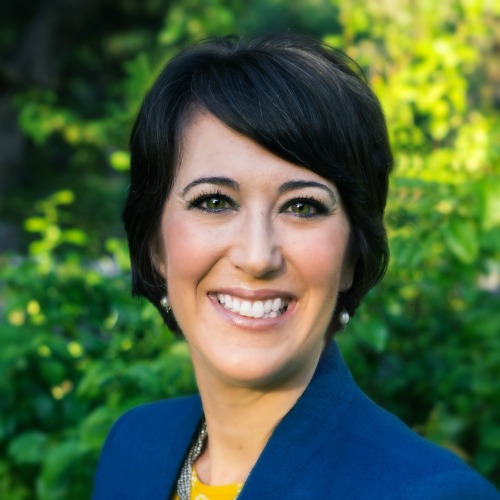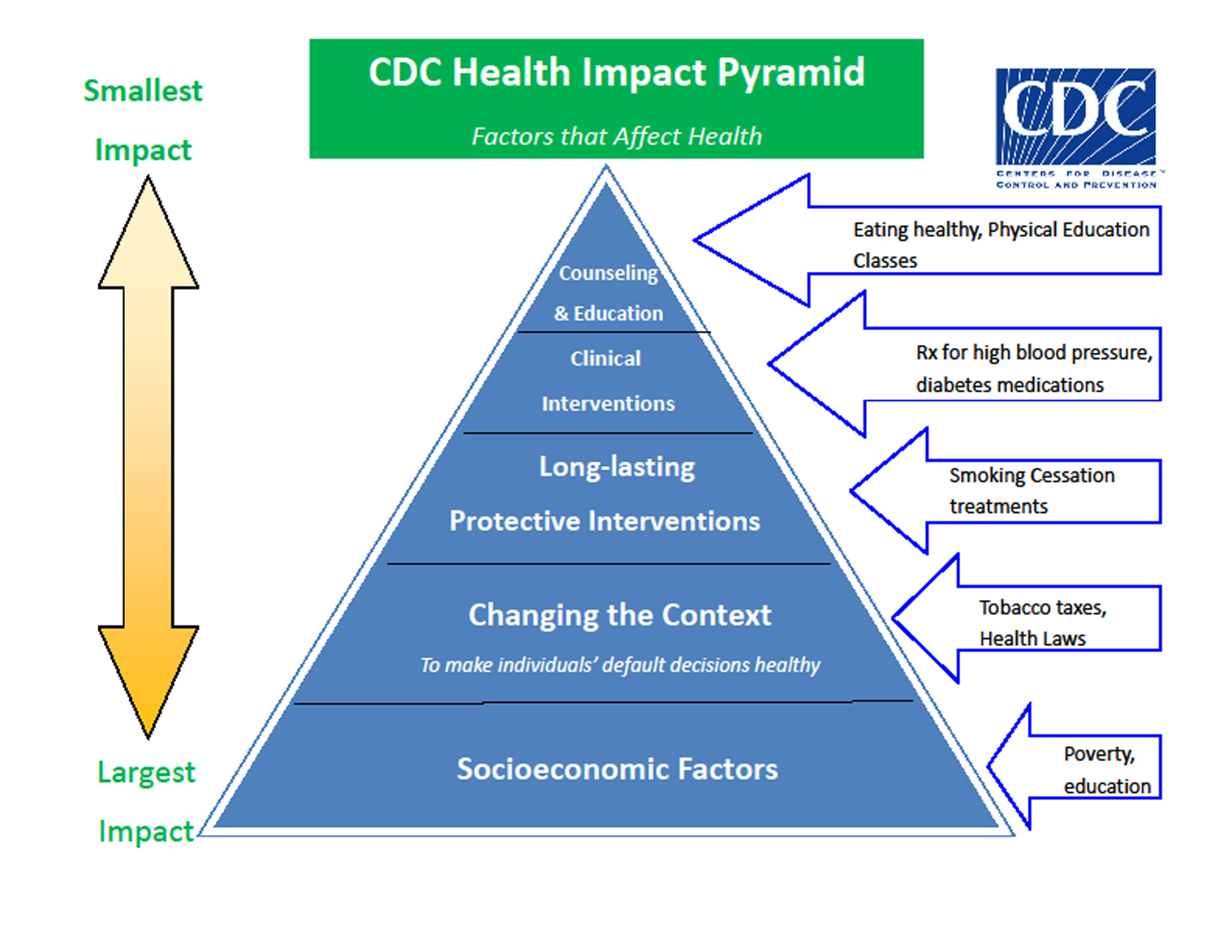
When it comes to public and community health, we all recognize there’s so much work to be done it is easy to get overwhelmed. Where do we start?
The emphasis over the past decade has been a movement to focus on policy, systems and environmental changes – or PSE.
The intention of focusing on PSE is the ability to reach a larger audience and have greater sustainable impact. The Centers for Disease Control and Prevention has an infographic that illustrates this concept. It shows that counseling and educational efforts generally have a smaller impact because they are reaching one person at a time. Whereas, as we work our way down the pyramid — and begin focusing on PSE — we reach a larger audience, resulting in a larger impact.

The Blue Cross of Idaho Foundation for Health has embraced the PSE movement. We believe it provides a powerful approach to creating sustainable change. However, in order for our initiatives to accomplish sustainable change, we first must understand the systems within which we are operating and then identify and engage the appropriate system stakeholders. System stakeholders are those individuals who have the authority and ability to create change within a system. However, sometimes systems stakeholders are not aware of their role in the larger system and how they can be a change agent in the system.
If we are asking system stakeholders to help us make systems changes, we are obligated to help them become systems thinkers.
To create systems thinkers, we need to revisit the top of the pyramid in the CDC image above. Many behavior change theories and models have been developed and are utilized at the top of the pyramid to help create individual behavior change through counseling and clinical interventions. These models focus on changing knowledge, beliefs, skills, and motivation to help individuals make a change.
Concepts from behavior change theories and models can be applied to creating systems thinkers who can make systems changes. The Blue Cross of Idaho Foundation for Health has been doing exactly that – we have been using these concepts to cultivate system stakeholders who will grow into systems thinkers, and ultimately, create systems changes.
 Take the Community Health Academy as an example of this concept in action. The academy is a learning collaborative designed to educate and inspire city leaders to influence PSE changes around issues of community health and childhood obesity. This collaborative is part of the Foundation’s High Five initiative, which creates transformational change focused on healthy children through physical activity and access to healthy foods. Currently, High Five is focused on local Idaho communities and mayors.
Take the Community Health Academy as an example of this concept in action. The academy is a learning collaborative designed to educate and inspire city leaders to influence PSE changes around issues of community health and childhood obesity. This collaborative is part of the Foundation’s High Five initiative, which creates transformational change focused on healthy children through physical activity and access to healthy foods. Currently, High Five is focused on local Idaho communities and mayors.
We chose to work with mayors and their city staff because they are system stakeholders who have the capability to create systems changes that can impact physical infrastructure, such as pathways and parks, planning, and ordinances related to physical activity and access to food.
Mayors who have demonstrated an interest and motivation to impact health in their community are invited to participate in the Community Health Academy. The goal is to build champions in creating healthy communities to fight childhood obesity. For mayors and their leadership team, the academy provides a rare opportunity to learn from subject matter experts and their peers from across the state, providing them with knowledge they can act on. The Academy focuses on enhancing knowledge, changing beliefs and providing the necessary skills to make community-level changes.
The Academy includes:
– Information and history of community health and the obesity epidemic
– Information about the importance of a mayor’s role in impacting health
– Presentations and technical assistance from national experts
– Presentations on evidence-based practices to promote physical activity and access to healthy foods
– Skills to hold community convenings and build necessary community partnerships to impact health
– Skills to build a community brand that promotes health

Among the mayors and city staff who have participated in the academy, many grow to become systems thinkers and begin to initiate systems changes. Several of the mayors and their city staff are revamping their cities’ comprehensive plans to include language related to health. Some are updating planning and zoning ordinances that promote walkability, incorporating “Complete Streets” policies. Others are allocating funding for sidewalks, safe routes to schools, and even changing procurement practices to incorporate more fruits and vegetables.
This is tremendous progress and it all started with engaging and cultivating system stakeholders who grew into systems thinkers, and are ultimately creating policy, systems and environmental changes.